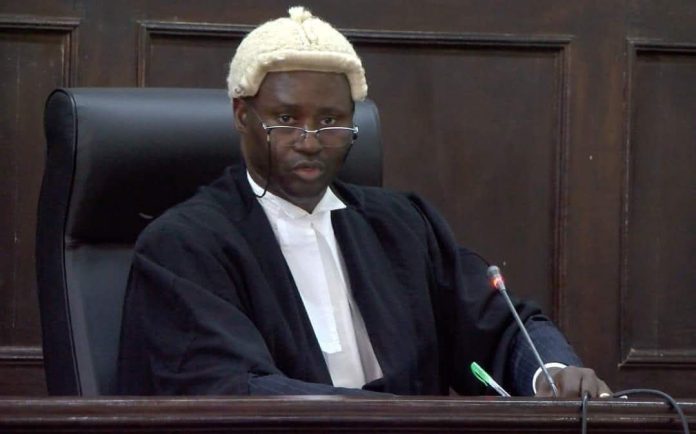By Kemeseng Sanneh (Kexx)
The High Court, presided over by Justice Ebrima Jaiteh, has set aside a judgement by the Kombo South District Tribunal in a contentious land dispute between Inna Puye and Koko Williams, citing jurisdictional overreach and serious evidentiary lapses.
Delivering judgment in the appeal case filed by Inna Puye on July 19, 2022, Justice Jaiteh ruled that the Tribunal’s decision—dated June 8, 2022—was fundamentally flawed. The court found that the Tribunal exceeded its powers, misapplied customary land law, and ignored credible evidence presented by the appellant.
The appeal centered around a dispute over land located within the jurisdiction of Busumballa Village. Puye, represented by Counsel F. Jammeh, challenged the Tribunal’s declaration that any land transaction not originating from the Alkalo of Latriya Village was null and void.
Justice Jaiteh ruled that the Tribunal had no authority to make such a sweeping declaration, especially when no specific relief had been sought by the plaintiff before it. He cited precedents—including Bello v. Attorney General of Oyo State (1986)—to stress that courts and tribunals must not issue rulings that go beyond what is asked of them.
The High Court further found that the Tribunal failed to properly evaluate the burden of proof in the case. The respondent, Koko Williams, had claimed allocation of the land from the current Alkalo of Latriya, Ebou Latri Darboe, but failed to present documentary evidence or corroborating witnesses to support the claim.
In contrast, Puye presented both oral and documentary evidence—including testimony from the Alkalo of Busumballa and the Jatta family—that supported her claim of lawful allocation and development of the land since 2001.
The Tribunal was also faulted for relying on unverified historical accounts regarding the creation of Latriya Village in 1964 and ancestral allocations of land to Pa Latri Darboe. The court ruled that such narratives were unsupported by official documents such as gazettes or boundary maps.
Additionally, the Tribunal claimed to have conducted multiple site inspections with all parties present. However, the appellant’s testimony, which went unchallenged, indicated that only one such visit occurred—and only the court scribe was present.
Justice Jaiteh noted that customary law, like any other law, must be established through credible evidence and must pass the test of consistency with statutory and constitutional principles, as required by Section 13 of the Evidence Act.
The court found that the Tribunal disregarded these standards and failed to consider the appellant’s uninterrupted possession and visible development of the land. It also gave undue weight to vague testimony from the respondent, who failed to prove better title or possession.
As a result, the High Court made the following orders that the appeal was allowed in its entirety and further ordered that the Kombo South District Tribunal’s judgment of June 8, 2022, was set aside. He said the respondent’s claim before the Tribunal was dismissed in full because the court found that the respondent failed to establish a better claim to the land than the appellant. He ordered costs of D50,000 were awarded to the appellant. He finally ordered that the appellant is entitled to continue in peaceful occupation of the land unless lawfully evicted by due process.
















